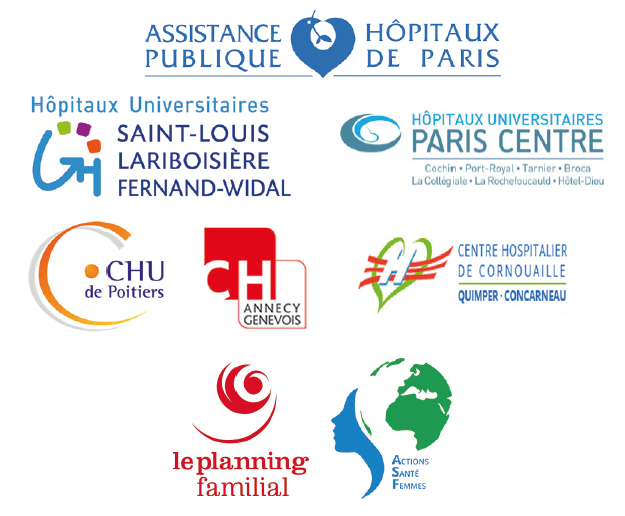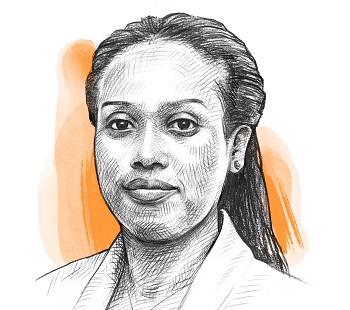PASST2 – Health Sector Support Project
Objective
-
€ 10mBUDGET
-
01/01/2016PROJECT START
-
48 monthsDURATION
The health system in Chad suffers from a serious lack of human resources, a low level of initial training and real difficulties in terms of geographical and financial accessibility.
With a maternal mortality rate of 860 deaths per 100,000 live births and a child mortality rate of 72 per 1,000 below one year and 133 per 1,000 under 5 years of age, Chad has one of the highest maternal and child mortality rates in the world. Malnutrition, which affects 38.7% of children under 5, also causes problems for 45% of pregnant women. Immunisation coverage is very low (25%). In addition to these figures, the fertility rate stands at 6.4 children per woman and 5% of women have access to a modern contraceptive method.
By focusing on financial accessibility to healthcare and improving the quality of healthcare services, PASST2 is a new opportunity for the country. It is in line with the reflection conducted by the Chadian Government in terms of universal health coverage and, in particular, targeted free access to healthcare for the most vulnerable. PASST2 fits in with Chad’s health policy and supports the national roadmap to speed up the reduction of maternal, newborn and child mortality.
The total amount of this project, which is mainly financed from the Muskoka Fund by Agence Française de Développement (AFD), stands at EUR 10m for 2015-2019. EUR 3.4m out of these EUR 10m have been entrusted to Expertise France to:
• Improve maternal, newborn and child health services in quantity and quality;
• Raise awareness among populations to increase the use and accessibility of these services.
For further reading: Reproductive health in Chad: a fortnight to raise awareness against the “4 TOOs”
Set up a maternal, newborn and child health programme
In the context of PASST2, Expertise France has been mandated to set up a maternal, newborn and child health programme. More specifically, PASST2 aims to improve health coverage, the quality of essential obstetric and neonatal care services, and increase the prevalence of family planning and the survival of children under five years of age.
This project takes into account recent developments supported by the health authorities in Chad and, in particular, the Health Centre Revitalisation Plan for the towns of N’Djamena, Moundou and Abéché, which aims to decentralise and strengthen the national, regional and district hospitals of the structures supported.
Five main objectives that contribute to…
• Improving health coverage and ensuring the availability and accessibility of essential obstetric and neonatal care;
• Improving the quality and follow-up of care for woman who go to health centres during their pregnancy;
• Increasing the prevalence rate of family planning;
• Improving the survival of newborns and children under 5 years of age through integrated healthcare services;
• Increasing understanding of the risks related to pregnancy and childbirth through awareness-raising and advocacy at community level for a social mobilisation organised to promote maternal, newborn and child health.
An approach focused on practice and the acquisition of know-how
The innovative aspect of this project lies in the operating method used: the “buddy” system and on-site clinical training (in other words, assistance with procedures and very little theory) given by multidisciplinary French teams (midwives, IDE nurses for general care, gynaecologists/obstetricians, paediatricians, anaesthetists, family planning counsellors and trainers, midwife instructors, paediatric nurses and biomedical staff).
To this end, since 2016, Expertise France has been developing partnerships with French hospitals and associations. The professionals from these structures (gynaecologists-obstetricians, paediatricians, midwives…) assist their Chadian counterparts with care practices in order to build the capacities of health workers in a work situation.
Numerous Chadian and French partners
 Expertise France is implementing this project in partnership with the Chadian Ministry of Public Health, the NGO BASE, the CHU Bon Samaritain Hospital, ECOSEET, CDN and ENASS. For Expertise France, in addition to the gynaecologist-obstetrician technical experts, there are many French partners working on this training: the Public Hospitals of Paris (AP-HP), the Paris Centre University Hospital Group, the Cochin Port-Royal Hospital, the Saint-Louis, Lariboisière, Fernand-Widal University Hospital Group, the CHU Poitiers Hospital, the Annecy Genevois Hospital, the Quimper Hospital, the French Movement for Family Planning and Actions Santé Femmes.
Expertise France is implementing this project in partnership with the Chadian Ministry of Public Health, the NGO BASE, the CHU Bon Samaritain Hospital, ECOSEET, CDN and ENASS. For Expertise France, in addition to the gynaecologist-obstetrician technical experts, there are many French partners working on this training: the Public Hospitals of Paris (AP-HP), the Paris Centre University Hospital Group, the Cochin Port-Royal Hospital, the Saint-Louis, Lariboisière, Fernand-Widal University Hospital Group, the CHU Poitiers Hospital, the Annecy Genevois Hospital, the Quimper Hospital, the French Movement for Family Planning and Actions Santé Femmes.
In the field, Expertise France also works in partnership with the main local actors: ASTBEF (Chadian Association for Family Welfare), the Association of Gynaecologists of Chad, WHO, UNICEF, UNFPA, UNDP, the Association of Women Lawyers, the Association of Chadian Midwives, CNGOF, the various pandemic containment programmes, health committees and health management committees.
 Jean-Yves Redon, gynaecologist-obstetrician and technical expert for PASST2
Jean-Yves Redon, gynaecologist-obstetrician and technical expert for PASST2
“Work based on trust”
In Chad, many women deliver at home: they often only go to a health facility if there is a complication. However, when the project started, we saw that the emergency obstetric and neonatal care (antibiotics, caesarean section, blood transfusions, neonatal resuscitation…) was not always carried out properly. So, to allow emergencies to be treated, we didn’t confine ourselves to theoretical reminders: French health professionals worked in immersion in the delivery rooms, where they trained and advised their Chadian counterparts. A real relationship of trust has been built up over the missions and it gives results. For example, in N’Djamena, the midwives mobilised have been working on disseminating the use of the partogram, which makes it possible to identify abnormalities during delivery and make quick decisions: the document includes various variables that make it possible to follow the progress of the delivery while monitoring the state of health of the mother and foetus (heart rate, cervical dilation, etc.).


